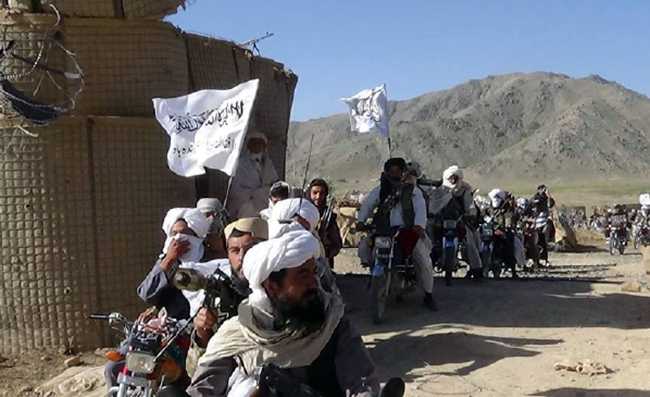Recently, the issue of peace talks between the Taliban and Afghan government has been changed into a controversial topic. On the one hand, the Taliban militants intensify their attacks along with other terrorist networks, but on the other hand, Afghan and its international allies persist on holding talks.
Political pundits believe that war will result in heavy casualties and irreparable loss and reconciliation process will be the only viable option for bringing stability in Afghanistan. Although negotiation with the Taliban has been underlined, it was not facilitated. Kabul never closed the door for negotiation and the High Peace Council (HPC) is tasked to discuss the issue of peace with the Taliban.
The fact is that reconciliation process was constantly dismantled at critical moments. For instance, Murree talks were spoiled by the revelation of Mullah Omar’s death and the four-nation Quadrilateral Coordination Group (QCG) – comprising of Afghanistan, Pakistan, China and the United States – was ended with the death of his successor. Subsequently, the peace process came to stalemate.
The QCG will be revived as it will reportedly meet in Muscat, the capital of Oman, on Monday to resume peace talks with Afghan Taliban. However, two senior Afghan Taliban leaders are quoted as saying that the group’s leadership council met last week and decided not to send a delegation to Muscat even if the group was invited to participate. Despite many regional conferences and talks regarding peace, the Taliban neither participated nor reduced their insurgency in Afghanistan.
The Quadrilateral Cooperation Group first met in January 2016 and has had five sessions so far, the last being held in May 2016 in Murree.
The US urges Pakistan, which is allegedly harboring Afghan Taliban commanders, to exert more influence on the group to bring them to the negotiating table. US Defense Secretary James Mattis said Washington would try “one more time” to work with Islamabad on the Afghanistan front before President Donald Trump turned to options to address Pakistan’s alleged support for militant groups. Pakistani officials deny sheltering Taliban militants saying their influence on the group has waned.
Russia is also a regional key player in terms of peace talks. Only few days ago, Moscow hosted a meeting about Afghan peace process. The United Nations Special Representative for Afghanistan Tadamichi Yamamoto said Russia could play a vital role in supporting peace efforts in the region. He made the remarks at the third Senior Officials Meeting (SOM) in Kabul. “Russia is a very important partner and player in efforts to peace internationally. And we certainly look to Russia to play very constructive role. They can play constructive role and they have the intention to play constructive role. And we hope that the efforts shall be very very fruitful to the international effort,” said Yamamoto.
In spite of all hope and optimism, the Taliban still hold out against the repeated calls for peace continuing their insurgencies in Afghanistan. In other words, although the regional countries hold conferences and meetings to facilitate talks, the Taliban insurgents never stop violence and bloodshed.
The Taliban government was overthrown by US-backed Afghan forces in late 2001 but US forces have been bogged down there ever since. About 2,400 US troops have been killed in Afghanistan.
The US military and intelligence officials are concerned that a new Taliban victory would allow Al Qaeda and the self-styled Islamic State of Iraq and the Levant (ISIL) group to establish bases in Afghanistan. That could allow them to plot attacks against the United States and its allies, they fear, just as Osama bin Laden had done with the Sept 11, 2001, strikes that triggered the war in Afghanistan.
Within the last two years, Afghan soldiers and civilians also sustained heavy casualties as a result of the intensified terrorist attacks. Many provinces of Afghanistan, including Kabul, came under heavy attacks which increased civilian casualties. Now the question is that with the Taliban’s repeated refusal, will the regional players be able to bring the Taliban to peace table?
It is simply said that “you can lead a horse to water, but you can’t make him drink.” Afghanistan and its international allies and neighboring countries will be able to bring the Taliban to negotiating table, but persuading them to stop violence still seems difficult. Perhaps, the Taliban’s preconditions, mainly withdrawal of foreign troops from the country, will not be acceptable for Afghanistan and its allies. If the Taliban’s preconditions are met, their promise for stopping violence will not be trusted since they have played foul game for several times, especially by killing the former head of HPC Burhanuddin Rabbani on 20 September 2011. So, persuading the Taliban to stop war is more significant than nudging them to peace table. The past face-to-face talks did not put an end to insurgency.
Home » Opinion » The Taliban Balk at Holding Talks
The Taliban Balk at Holding Talks
| Hujjatullah Zia

